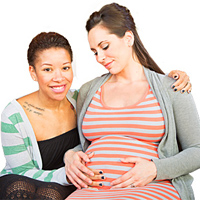 Breastfeeding Education Online Course(s) & Continuing Education
Breastfeeding Education Online Course(s) & Continuing Education
Access the latest clinical skills and research for Breastfeeding Education for Lactation & Breastfeeding professional training. These Breastfeeding Education online courses provide practice-changing skills and valuable perspectives from leading global experts. This Breastfeeding Education education has been accredited for a variety of CEUs / CERPs and can be accessed on-demand, at your own pace.
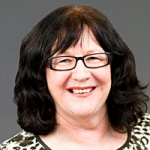
Breastfeeding - what we need to know as Birth Workers

Geraldine has been involved in breastfeeding support and education for 30 years in Ireland. She works in private practice as a Lactation Consultant doing home visits. She has a major interest in Adult Education and she runs Training of Trainer (Lactation) courses for healthcare professionals in Ireland. She tutors for a group called Cuidiú, training both breastfeeding counselors and childbirth educators.She has organized Peer to peer education for other groups in Ireland and abroad. Geraldine has spoken at many conferences both in Ireland and abroad or a range of topics but her choice usually comes back to her interest in Adult education and the theories around learning styles, groupwork, experiential learning and programme development.
Topic: Learning styles – Certainly Not a One Size Fits All - [View Abstract]
Birth workers are usually the first contact with parents and are therefore the people who are best placed to influence them in their choice of infant feeding method. Adults only retain information on a ‘need to know’ basis, so meeting the needs of individuals in your interactions is important. Whether you provide a formal breastfeeding class or just have 5 mins to chat during a prenatal visit, what is the best way for you to provide evidence, which information is important. How can you help parents to make an informed decision about feeding. Adult education theory, learning styles, aims and learning outcomes for your interactions, as well as breastfeeding information will be presented and ideas for how you can make your clients learning fun and interactive.
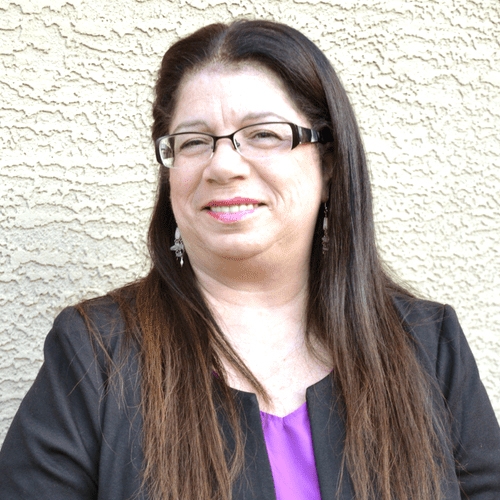

Lori J. Isenstadt, IBCLC, CCE, CBD, began her IBCLC career in 2 large hospitals and a local breastfeeding clinic. In 2007, she opened her practice, All About Breastfeeding, offering private consultations, and breastfeeding classes. Her expertise ranges from basic breastfeeding through the most complicated of breastfeeding challenges. In the last 30 years, Lori has taught breastfeeding classes to over 8000 parents where she focuses on what they should expect in the early days of breastfeeding. Lori is a member of Toastmasters International and enjoys speaking about mothering and breastfeeding. Lori is the host of All About Breastfeeding, a podcast where she interviews mothers, authors, researchers and physicians about topics related to breastfeeding. Lori believes that breastfeeding is a family affair. To help support her mission to educate families as well as corporations and business owners about breastfeeding, she has recently released the most comprehensive audio breastfeeding masterclass. She has produced over 300 shows many of which focus on breastfeeding educational topics. On a personal note, Lori resides in Phoenix, AZ is married to Alan for 38 years and is the mother of three adult children. Lori can be reached by email: [email protected] and website: www.aabreastfeeding.com
Topic: The Good news about delivering bad news: how to present difficult information to parents - [View Abstract]
Topic: The Original Foster-Mother Were Wet Nurses - [View Abstract]
Global breastfeeding initiation rates are about 80-85%. Unfortunately, there is a significant drop off rate of exclusive breastfeeding in the early weeks, well before parents return to work. The latest statistics of 45% exclusive breastfeeding at 3 months and 28% exclusive breastfeeding rates at 6 months clearly demonstrate that duration not initiation is the real struggle. This presentation will begin by reviewing global breastfeeding rates. We will than gain some real insight from parental feedback which helps us to understand what changes we need to make in breastfeeding education. You may be surprised to find out exactly what the point of breastfeeding classes are and who we should be targeting to help support parents in the early months of breastfeeding.

View Details / Enroll
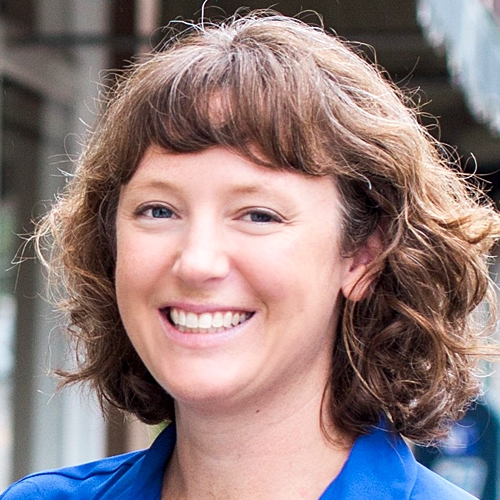
Breastfeeding Education in Secondary Schools—Research and Application for Lactation Professionals

After studying biology at Meredith College in North Carolina, Nicola Singletary, PhD, MAT, IBCLC spent the early part of her career sharing her love of science with middle school students. It was not until after the birth of her first child in 2007 and the challenges she faced breastfeeding that she became interested in pursuing a career in breastfeeding support. She enrolled at North Carolina State University to study human nutrition and completed the Mary Rose Tully Training Initiative through the Carolina Global Breastfeeding Institute at UNC Chapel Hill in 2012. In the fall of 2013, she opened Harmony Lactation, LLC with the goal of helping mothers meet their breastfeeding goals. She recently completed her PhD in Nutrition and is a postdoctoral researcher at NCSU; her research focuses on breastfeeding education. She is also co-owner of Next Level Lactation, an educational and consulting company for lactation professionals.
Topic: Funny Tasting Milk: The Biochemistry and Clinical Applications of Human Milk Oxidation vs. High Lipase Action - [View Abstract]
As part of efforts to increase breastfeeding initiation and duration, educational interventions aimed to increase awareness and positive attitudes towards breastfeeding beginning during the school years are recommended by the World Health Organization and UNICEF UK. Breastfeeding education in the school setting offers the opportunity to introduce the topic to a wide range of students from a variety of socioeconomic and cultural backgrounds. The purpose of this presentation is to 1) present a critical review of the literature regarding stakeholder views of breastfeeding education programs in schools, 2) explore ongoing mixed methods research on North Carolina family and consumer science teacher attitudes and practices relating to infant feeding education in the secondary classroom, and 3) make recommendations for opportunities for lactation professionals to promote breastfeeding education in schools.
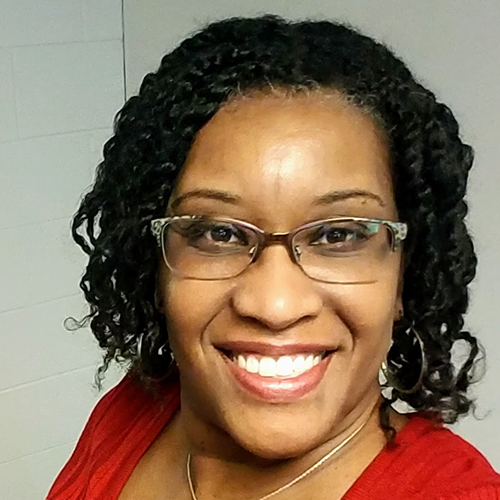
Counseling and Anticipatory Guidance to Reduce Perceived Insufficient Milk Production

Tameka Jackson-Dyer is an International Board-Certified Lactation Consultant (IBCLC) and Community Health Worker whose passion is community outreach. She holds a Bachelor of Applied Science in Health Studies from Siena Heights University, several lactation certifications and has been in the field for almost 20 years- honing her counseling and clinical skills in WIC agencies, OB/Gyn offices and Baby Friendly hospitals throughout the metro Detroit area. Her work as Manager of Community Collaboration with Coffective and consulting work with the EMU Center for Health Disparities, Innovations & Studies on their CDC/REACH and NACCHO grants- allows her to provide a voice for the populations who are historically underrepresented in conversations about breastfeeding support. To ensure she reaches as many families in her community as she can, the wife and mother of three owns a private practice, Crazymilklady Lactation Support Services, LLC, serves as Chair of the Metro Detroit/ Wayne County Breastfeeding Coalition, is a co-founder of the Southeast Michigan IBCLC’s of Color and volunteers as a Sisterfriend mentor with the Detroit Birthing Project.
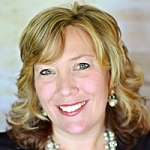
Expanding Our Audience to Gain Greater Appreciation and Acceptance of Breastfeeding

Christy Jo has over 25 years of teaching experience. She is passionate about teaching in ways that simplify learning. She has been awarded the United States Presidential Volunteer Award for her community service, the Phyllis Klaus Founder's Award for her contribution to the Mother/Baby bond and the Above and Beyond Award for innovative projects that exemplify the mission of Public Health. She has also been named Lactation Educator Faculty of the Year from Childbirth and Postpartum Professionals Association and earned their Visionary Award in 2015. Christy Jo is the author of Mommy Feeds Baby and co-author of Making Milk. She created the Grow Our Own Lactation Consultant/IBCLC Prep Course which has been used to train hundreds of students to become Lactation Consultants. She currently resides in California with her husband and three children. She continues to serve her community as a birth doula, Private Practice IBCLC, Health Educator for Public Health, and faculty for the CAPPA CLE© and Childbirth Educator Programs.
Topic: Enhanced Counseling Skills for the Lactation Educator - [View Abstract]
Topic: Expanding Our Audience to Gain Greater Appreciation and Acceptance of Breastfeeding - [View Abstract]
Topic: Sharing Your Wisdom: From Abstract Idea to Awesome Prenatal Breastfeeding Class - [View Abstract]
Topic: The Art of Communication: Simplifying Birth and Breastfeeding - [View Abstract]
As educators and health organizations, we mostly target prenatal women with the breastfeeding message and then are surprised at the push-back we receive from those who do not embrace breastfeeding. In order to tip the scale in breastfeeding acceptance, we must broaden our audience.
This presentation will focus on reaching a larger audience. We must project our message to the masses. It is crucial to share breastfeeding education to society, early and frequently. Breastfeeding education should begin in the school system and be geared for each age appropriately.
We must offer education in a way that each person and organization understands how it applies to them and their situation. For instance, employers will be more likely to embrace the employee that breastfeeds if they understand the far-reaching effects of breastfeeding. The lawmakers will be more likely to approve lactation laws if they comprehend the need for legislation. Partners will offer appropriate support if they receive the same education that is often reserved for the pregnant woman. This presentation will give suggestions of how to reach family, communities, professionals, and lawmakers with the breastfeeding message. When societies embrace breastfeeding, they will embrace breastfeeding women and see it as the norm.
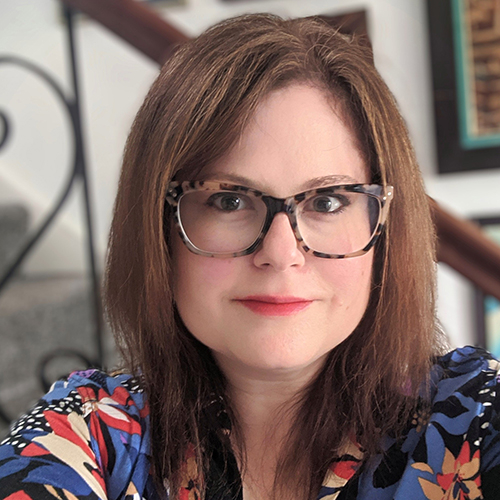
Lactation Education Outside the Box: Innovative Teaching Strategies to Engage Your Audience

Tamara Drenttel Brand holds an MA in Near Eastern Studies from the University of Arizona and a Master’s in Public Health (MPH) from the American University of Beirut. She spent 10 years in the Middle East, where she worked as a public health practitioner, infant and maternal health consultant and an IBCLC. She has supported breastfeeding dyads from all over the world both in private practice and as a volunteer. In 2011, she founded and still actively facilitates “Mama 2 Mama Beirut Breastfeeding Support,” the largest breastfeeding peer support network in the Middle East (currently at 25k+ members). Additionally, she founded Galactablog, a professional group for lactation specialists and those aspiring-to-be (currently at 4.7k+ members) and has authored several articles for La Leche League’s monthly leader publications in both the Middle East and Ireland.
She is currently an international speaker on the topics dealing with breastfeeding in the Middle East, innovative lactation teaching strategies, working in resource-scarce settings, providing culturally sensitive lactation support, developing and implementing peer counselor training programs, mast cell disease and other related topics. Due to her own chronic health conditions, she has a special interest in educating others about mast cell disease and supporting those with chronic illnesses. She currently resides in a seaside village in Ireland with her family.
Topic: Contextualizing Breastfeeding in Lebanon - [View Abstract]
Topic: Lactation Education Outside the Box: Innovative Teaching Strategies to Engage Your Audience - [View Abstract]
Topic: Mast Cell Diseases and Lactation Care in the Post-Covid Era - [View Abstract]
Topic: Providing Culturally Sensitive Support for Breastfeeding Muslim Families - [View Abstract]
Topic: Reflections on a Breastfeeding Peer Counselor Program in Lebanon: Lessons Learned and Looking Forward - [View Abstract]
Are you a lactation professional or health care provider looking for ways to engage your audience? Whether your audience is breastfeeding families, parents-to-be, peer counselors, volunteers, health care professionals or lactation specialists, then this presentation is for you! In it, I will show how creative solutions can overcome a lack of resources or technology to provide mothers and families with engaging and effective breastfeeding support. This session will cover innovative and interactive educational strategies and activities that can be used to capture your audience’s attention and to encourage them to retain vital information and strategies to help them breastfeed.
These concepts are practical and applicable to all types of settings, including but not limited to: breastfeeding support groups, lectures and presentations, training sessions, webinars, seminars and one-on-one lactation consultations. Moreover, they are easily modifiable to fit the needs of different populations and cultures. As many lactation professionals work in low-income communities or resource-poor settings that frequently lack many of the latest gadgets and expensive lactation aids, this presentation will offer demonstrations and tutorials of Do-It-Yourself (DIY) options that can ensure that breastfeeding mothers and families get the best support possible, even when resources are scarce.

Learning styles – Certainly Not a One Size Fits All

Geraldine has been involved in breastfeeding support and education for 30 years in Ireland. She works in private practice as a Lactation Consultant doing home visits. She has a major interest in Adult Education and she runs Training of Trainer (Lactation) courses for healthcare professionals in Ireland. She tutors for a group called Cuidiú, training both breastfeeding counselors and childbirth educators.She has organized Peer to peer education for other groups in Ireland and abroad. Geraldine has spoken at many conferences both in Ireland and abroad or a range of topics but her choice usually comes back to her interest in Adult education and the theories around learning styles, groupwork, experiential learning and programme development.
Topic: Learning styles – Certainly Not a One Size Fits All - [View Abstract]
Learning styles can be defined as the cognitive, effective and psychosocial behaviours that can serve as relatively stable indicators of how learners perceive, interact with and respond to a learning environment. Learning styles are just one part of Adult education theory, how do the theories around Androgogy, Transformation learning, Experiential learning and programme development affect those offering education in the world of breastfeeding. In this session, we will explore what we have to understand about how adults learn in order to be able to communicate effectively. We will also explore ways to empower people to understand breastfeeding and their role in advocating for women and babies.
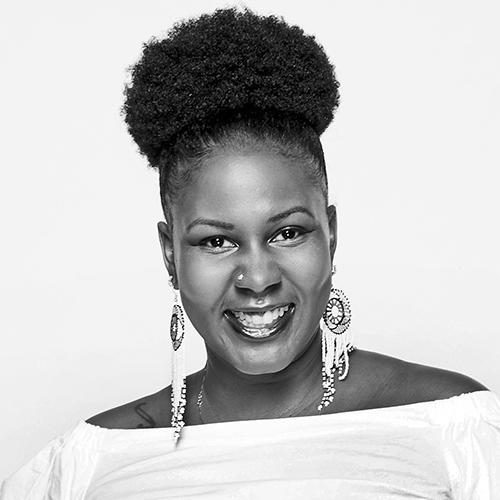
Meet Them Where They Are: Applying a Multidisciplinary, Equitable and Sustainable Approach to Breastfeeding and Lactation Practice & Promotion

TaNefer is an IBCLC, Maternal Health Strategist and Healer with over 15 years of experience in supporting families through birth, breastfeeding and postpartum. She has a background in psychology and Health education with an emphasis in community health and early career experience in counseling, social services and family advocacy. She brings a wealth of knowledge and experience as she helps her clients identify their challenges and lovingly guides them through a plan to overcome them. She has the ability to work with diverse populations and tailors support to fit the needs of each unique person or group. She educates parents, families and professionals on lactation, breastfeeding and maternal healing. She is also a researcher, serving as a Community Advisory Board member to the UCSF Preterm birth initiative and is also the Community Researcher and Relations consultant to the SACRED Birth Study. She has designed, implemented and evaluated programs in maternal equity and lactation and is the creator of the "Teach me how to breastfeed" song and viral music video. TaNefer Lumukanda Camara is also a Co-founder B.L.A.C.K Course.
It’s been a decade since the Surgeon General’s call to action to support breastfeeding. While great strides have been made to improve breastfeeding rates in the US, diverging societal conditions, disparate birth outcomes and changing family dynamics have necessitated adjustment and adaptation of more inclusive and multifaceted approaches to lactation support. With up to 34% of birthing people having experienced a traumatic birth, one study has shown how the effect on breastfeeding can go in either direction. If we factor in housing instability, mental health and race/immigration status we see greater disparities and/or differing needs according to the target population. However, the paradox is that these issues are not mutually exclusive, therefore a one size fits all approach is not sufficient. The COVID-19 Pandemic shed light on pre-existing gaps and disparities in this field and forced us to reimagine what breastfeeding promotion, protection and support should and can be. Implementing a multi-disciplinary plan to approach breastfeeding and lactation should be the trend moving forward. In this presentation you will learn how to:
Identify disciplines that can collaborate with lactation specialists to support breastfeeding promotion.
Discuss challenges in supporting populations with multiple needs and high risk.
Strategize a plan for reaching marginalized communities and populations at high risk and high need for lactation support.

Sharing Your Wisdom: From Abstract Idea to Awesome Prenatal Breastfeeding Class

Christy Jo has over 25 years of teaching experience. She is passionate about teaching in ways that simplify learning. She has been awarded the United States Presidential Volunteer Award for her community service, the Phyllis Klaus Founder's Award for her contribution to the Mother/Baby bond and the Above and Beyond Award for innovative projects that exemplify the mission of Public Health. She has also been named Lactation Educator Faculty of the Year from Childbirth and Postpartum Professionals Association and earned their Visionary Award in 2015. Christy Jo is the author of Mommy Feeds Baby and co-author of Making Milk. She created the Grow Our Own Lactation Consultant/IBCLC Prep Course which has been used to train hundreds of students to become Lactation Consultants. She currently resides in California with her husband and three children. She continues to serve her community as a birth doula, Private Practice IBCLC, Health Educator for Public Health, and faculty for the CAPPA CLE© and Childbirth Educator Programs.
Topic: Enhanced Counseling Skills for the Lactation Educator - [View Abstract]
Topic: Expanding Our Audience to Gain Greater Appreciation and Acceptance of Breastfeeding - [View Abstract]
Topic: Sharing Your Wisdom: From Abstract Idea to Awesome Prenatal Breastfeeding Class - [View Abstract]
Topic: The Art of Communication: Simplifying Birth and Breastfeeding - [View Abstract]
Get that idea of creating a prenatal breastfeeding class out of your head and make it a reality! You have wisdom to share, but how do you share it in a way that captures parents’ attention and appeals to different learning styles? In this interactive presentation, I’ll guide you through the process of creating a prenatal breastfeeding class. Join in as we work with tools and handouts that will help you create a prenatal breastfeeding class that meets the goal of setting parents up for breastfeeding success!
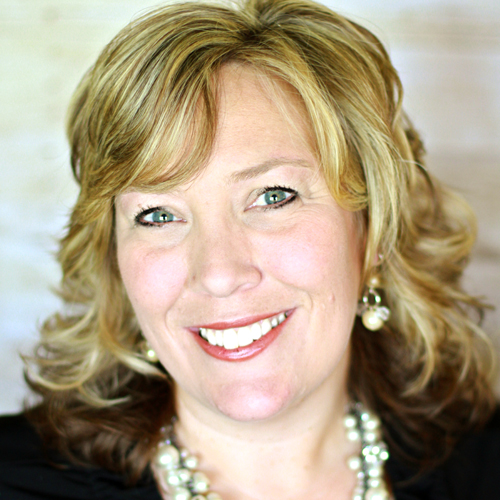
View Details / Enroll
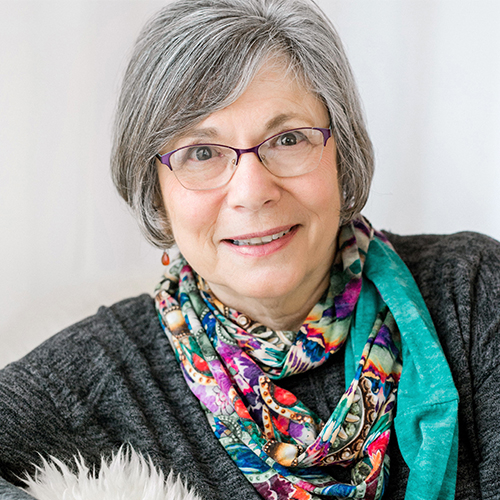
Spirited or Calm: How Temperament Impacts Breastfeeding/Chestfeeding and Parenting

Andrea Herron, is one of the first and longest continuous certified pediatric nurse
practitioners in the United States. After more than 40 years working with breastfeeding
mothers and their babies and teaching parenting classes, she is among one of the
most experienced consultant in the field of lactation. Regardless of the issue or concern,
Andrea has guided thousands of mothers to meet their breastfeeding and early parenting
goals through support groups, lactation consultations, and childrearing education. After
receiving a Master's in pediatric nursing from UCLA, Andrea became an early pioneer in
the back-to-breastfeeding movement, and educated health professionals as an instructor
in the UCLA lactation educator course, all over the United States. Her private lactation practice,
Growing with Baby in San Luis Obispo, California, was used as the national model for
private practices by Women Infant and Children (WIC), the federally funded health and
nutrition program. One of her favorite and most popular topics she teaches through her
Growing with Baby parenting groups is, Understanding Your Infant’s Temperament.
This topic and many of the other topics she teaches are included in her newly released
book, Suckle, Sleep, Thrive: Breastfeeding Success Through Understanding Your Baby’s
Cues. Co-written with Lisa Rizzo.
Andrea has been married to Larry Herron, an orthopedic spine surgeon,
for over 35 years. They are the proud parents of a grown son,
two Labradors, a cat, and parrot. The couple reside in Shell Beach,
California.
Topic: The Relationship Between Parent/Infant Synchrony, Breastfeeding Success and Infant Cues - [View Abstract]
Knowledge about infant temperament has been known since the early 1960s with the release of the ground breaking research of Dr. Alexander Thomas, Stella Chess and Herbert Birch and yet, among the general public there seems to be a lack of information about this important body of science (temperament). When parents perceive their baby as content and seemingly non-demanding, they may be shocked and dismayed to find out during a routine well baby visit that the baby is underweight or is failing to thrive. They thought the baby was content because she didn’t give clear cues, and as a result, was underfed. In another scenario, when the baby is irritable despite frequent feeding mothers may lose confidence and question the quantity and quality of their milk and prematurely wean. The behavior of the intense baby that screams on the scale when weighed and is tortured by the bath is overwhelming and misunderstood. When behaviors are misread or inappropriately responded to, optimal physical and emotional development is potentially affected. This presentation will help the learner understand the classic nine temperament traits and how they are grouped into classifications. The listener will learn about the topic of “goodness of fit “and its impact on the long-term emotional health of the infant and developing child. Finally, with case study examples, the emphasis is on how temperament impacts breastfeeding/chestfeeding.
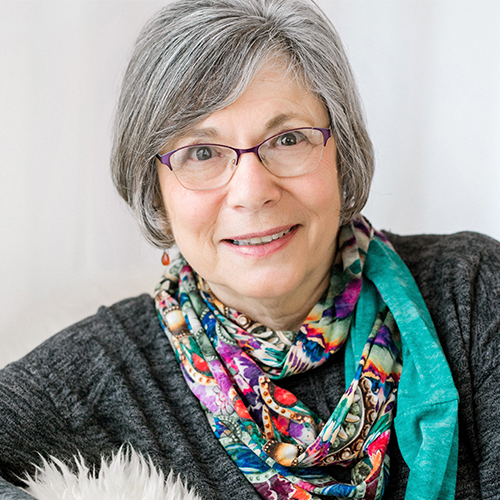
View Details / Enroll



